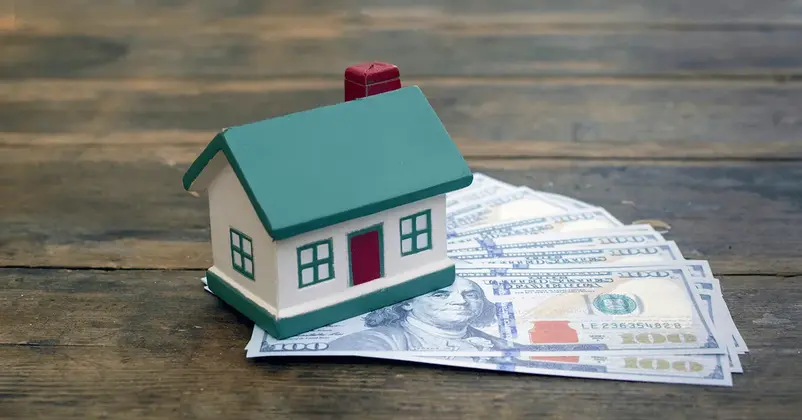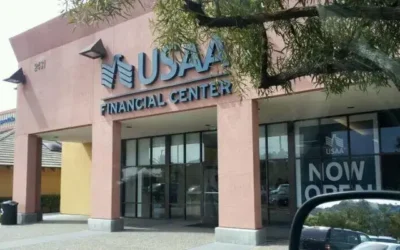
While the VA doesn’t require an earnest money deposit, sellers often expect one as a sign of serious intent. Deposits are held in escrow and later applied to costs or refunded, depending on contract terms. In tight markets, earnest money can strengthen a VA offer—provided you use contingencies and documentation that protect the funds if financing, appraisal, or property issues arise.
Quick Facts
- The VA doesn’t mandate earnest money; deposit expectations are set by local practice and purchase contracts.
- Funds sit in escrow with a neutral party and are applied at closing or refunded per contract provisions.
- VA buyers often rely on contingencies and the mandatory VA escape clause to safeguard their deposit.
- Seller credits can cover closing costs; separate “concessions” face a program cap and different rules.
- Refunds at closing are possible in specific situations, including reimbursement of earnest money paid up front.
FAQ’s
Is earnest money required for a VA loan?
No. Earnest money is a contract term negotiated between buyer and seller, not a VA requirement. However, many sellers still expect a deposit because it signals commitment, especially when inventory is tight or multiple offers are likely.
Can my earnest money be refunded at closing?
It can be, depending on the contract and what closing costs are paid by seller credits or lender credits. If allowable costs are fully covered elsewhere, your escrowed deposit can be reimbursed as a permitted refund of your own funds at closing.
How do I protect my deposit?
Use strong contingencies: the mandatory VA escape clause for low appraisals, a financing contingency for loan approval, inspection contingencies for defects, and protections tied to VA Minimum Property Requirements. Follow timelines precisely to preserve rights.
Key Takeaways
- VA doesn’t require deposits; earnest money is purely a negotiated contract term.
- Escrowed deposits can be applied to costs or refunded under agreed contract terms.
- Use the VA escape clause and other contingencies to protect earnest money.
- Only the VA funding fee can be financed on purchases; others are paid at closing.
- Seller credits may cover closing costs; separate concessions face a four‑percent cap.
- Refunds at closing are limited to permitted reimbursements, including earnest money.
Is earnest money required for a VA loan?
No—VA does not require earnest money. Deposits are negotiated in the purchase contract to signal a buyer’s commitment. They’re not part of VA eligibility rules. Federal consumer guidance treats earnest money as a contract deposit, not a VA mandate. For definitions and context, see CFPB’s plain‑language explanation of earnest money.
- Because deposits are contractual, amounts, delivery deadlines, and release conditions vary by state and local practice. Your agent and escrow holder will follow the written terms in your offer and any addenda agreed during negotiations.
- Earnest money is separate from down payment policy. The VA does not require a down payment, and it does not set a minimum or maximum earnest‑money amount for purchase contracts in any market.
- Clarity in the contract is critical. Name the escrow holder, define triggers for release or refund, and specify required notices, signatures, and timelines so funds are handled exactly as intended at closing or cancellation.
- Choose a deposit amount that fits local norms and preserves sufficient cash for inspections, moving, and emergency reserves once the offer is accepted and escrow is opened.
- Deliver funds using the method and deadline stated in the contract, then obtain a written receipt; your lender will use it to document the source of funds for underwriting.
- Coordinate with your agent to include protective contingencies and addenda that reflect VA‑specific concerns, like appraisal outcomes and Minimum Property Requirements compliance.
Bottom line: the deposit is governed by your purchase agreement, not by VA underwriting rules.
How is earnest money held and applied at closing on a VA purchase?
It’s held in escrow and credited at settlement. A neutral party (title company, attorney, or brokerage escrow) holds your funds. At closing, deposits typically reduce cash due for allowable charges—or, if costs are covered by credits, certain reimbursements are permitted. VA’s handbook confirms refundability of earnest money on purchases. See VA Lender’s Handbook—Chapter 3 and CFPB’s earnest‑money overview.
- Escrow follows the written contract. The holder releases funds only under the conditions both parties accepted—such as cancellation within contingency windows or instructions on the final closing disclosure.
- At settlement, earnest money appears as a buyer credit against closing charges and prepaids, helping reduce out‑of‑pocket cash while keeping the loan amount and VA guaranty unchanged.
- If allowable costs are fully paid by seller or lender credits, VA allows reimbursement of the buyer’s own earnest money at purchase closing, documented on the closing disclosure per program rules.
- Secure an escrow receipt and provide it to your lender early; underwriting must verify the source and path of funds for the loan file and closing disclosure.
- Track negotiated credits so they appear on disclosures, preventing misapplied funds and ensuring your deposit is credited correctly or refunded if permitted.
- Confirm with your lender whether a deposit refund is allowable in your scenario; VA rules limit cash back to reimbursement of your own paid amounts at purchase closing.
VA documentation explicitly notes that earnest money can be refunded on no‑down‑payment purchases when permitted by the final accounting and contract instructions.
What contract contingencies best protect a VA buyer’s deposit?
Use the VA escape clause, financing, inspection, and MPR protections. The mandatory VA escape clause protects earnest money if the appraised value is below price. Inspection and MPR‑related language covers health, safety, and habitability issues. Act within deadlines to preserve rights. Review the VA escape clause form and VA Minimum Property Requirements (MPRs).
- VA escape clause (amendatory clause) lets you walk if the appraisal is low and you decline to bridge the gap, preventing forfeiture of earnest money when you comply with notice and timing requirements.
- Financing contingency shields your deposit if final approval falls through despite reasonable efforts, provided the contingency period and documentation requirements are followed precisely per the contract.
- MPR protections allow cancellation or renegotiation if the property fails VA health, safety, or habitability standards and the seller won’t cure issues identified by appraisal‑related inspections.
- Calendar key dates (appraisal, financing, inspection) on day one and send timely written notices; missed deadlines can waive rights and put the deposit at risk.
- Attach the VA escape clause addendum to your offer and retain countersigned copies with the contract and lender disclosures for a clear audit trail.
- Commission inspections promptly and document defects, seller responses, and repair outcomes; use contingency language to exit if significant issues remain unresolved.
Together, the escape clause and MPR standards form the backbone of deposit protection for VA buyers confronting low valuations or property deficiencies.
What’s the VA funding fee—and can it be financed on a purchase?
It’s a one‑time program charge; only this fee can be financed. On purchases, the VA allows you to finance the funding fee into the loan—or pay it at closing. Other purchase closing costs generally must be paid at settlement. See the VA’s guidance on funding fees and closing costs.
- The fee’s percentage depends on factors like first or subsequent use and down payment; certain Veterans are exempt based on disability status shown on the Certificate of Eligibility.
- Financing the fee slightly raises the principal and monthly payment; paying it in cash preserves a lower balance but requires additional funds at settlement.
- Your lender will calculate the exact fee and show it on standardized disclosures alongside any points, credits, or buydown funds in the transaction.
- Confirm exemption status with your lender early; exemption changes the cash‑to‑close and might alter your decision to finance or pay the fee.
- Compare side‑by‑side scenarios—fee financed versus paid in cash—to see impacts on monthly payment, total interest, and long‑term cost.
- Coordinate any seller credits with how you handle the fee to align with cash‑flow goals at closing.
Remember: on purchase loans, the VA funding fee is the only cost that can be rolled into the loan balance; other purchase closing costs are paid at closing.
What closing costs can a seller pay on a VA loan?
Sellers can cover many buyer closing costs; concessions are different and capped. The VA clarifies typical buyer costs and allows seller credits toward those costs. Separate “seller concessions” (e.g., paying the funding fee or certain prepaids) are capped at 4% of reasonable value. See VA closing‑cost guidance and Lender’s Handbook—Chapter 8.
- Negotiable costs can include origination charges, discount points or buydown funds, appraisal fees, title insurance, recording fees, taxes, and prepaid insurance—items that appear on your Loan Estimate and Closing Disclosure.
- Closing‑cost credits aren’t subject to a specific percentage cap, but “seller concessions” are capped at 4% and cover extra inducements like paying the funding fee or a borrower’s debts.
- Because credits, concessions, and buydowns affect compliance and pricing, ensure each item is categorized correctly on the disclosures to avoid late‑stage rework.
- Ask your lender to itemize which fees a seller can pay in your state and whether any item counts toward the concession cap; this differs from routine closing‑cost credits.
- Align negotiated credits with appraisal support and the Notice of Value; excessive or misclassified credits can complicate underwriting or valuation.
- Verify every credit and concession on the Closing Disclosure before signing so the escrow holder can disburse funds correctly.
Using seller credits wisely can shrink cash‑to‑close, but keep concessions within the 4% cap and disclose them precisely to maintain VA compliance.
How do seller‑paid costs and seller concessions differ—and how does earnest money fit?
Seller‑paid costs are routine; concessions are extra benefits capped at 4%. Earnest money is your own escrowed deposit, applied or refunded per the contract and VA rules. Correct categorization prevents compliance issues and protects your path to a refunded deposit when applicable. For definitions, see Chapter 8.
| Item | Seller‑Paid Closing Costs | Seller Concessions | Earnest Money Deposit |
|---|---|---|---|
| Definition | Credits covering routine settlement fees and prepaids | Extra inducements (e.g., funding fee, some prepaids, paying debts) | Buyer’s good‑faith deposit held in escrow per contract |
| VA Limit | No specific cap for allowable buyer costs | Capped at 4% of reasonable value | No VA‑set minimum or maximum |
| Who Provides | Seller/builder as negotiated | Seller/builder beyond standard cost coverage | Buyer upon contract acceptance |
| Effect on Cash to Close | Reduces buyer’s out‑of‑pocket costs | Must stay under cap to remain compliant | Credited or refunded depending on final accounting |
| Disposition at Closing | Shown as credits on disclosures | Tracked against the concession cap | Applied to costs or reimbursed if allowed |
- Misclassifying a concession as a routine cost can cause compliance problems and delay closing; lenders must track the 4% cap separately from closing‑cost credits.
- Earnest money is not a seller concession; it’s your cash. It’s either applied to charges or reimbursed if allowable costs are covered elsewhere and the contract authorizes refund.
- Ask your lender to confirm categorization on the Loan Estimate and Closing Disclosure so escrow can allocate funds without last‑minute changes.
- List seller‑paid items and concessions separately in the offer and counteroffers, then ensure the lender mirrors that structure in disclosures to uphold VA rules.
- Monitor the concession total against 4% of reasonable value and adjust terms early if you approach the cap to preserve approval and timing.
- Provide your earnest‑money receipt and confirm whether it will be applied or refunded once final credits are known.
Clear separation of credits and concessions keeps your file compliant—and preserves the option to refund your own deposit at closing when permitted.
When can a VA buyer get their earnest money refunded?
At closing (as reimbursement) or after a protected cancellation. The VA allows reimbursement of the buyer’s own funds at purchase closings when costs are otherwise covered. Protected cancellations include low appraisals under the escape clause and unresolved MPR failures. See Chapter 3 and the VA escape clause.
- At purchase closing, a permitted refund appears on the Closing Disclosure as reimbursement of your own deposit, not as cash proceeds, when allowable costs are fully covered by credits and the contract authorizes refund.
- If the VA appraisal is below price and you choose not to bridge the gap, the escape clause allows cancellation without losing your earnest money—provided you act within the contract window.
- When MPR defects remain and the seller declines to cure, buyers can typically cancel under contingency terms and seek a refund consistent with the contract and escrow instructions.
- Track deadlines for appraisal, financing, and inspections; timely notices preserve rights to a refund and help escrow follow the contract’s release instructions.
- Keep lender letters, appraisal results, and inspection reports; escrow relies on these documents to confirm a contingency was triggered.
- Before signing, ask the settlement agent to show your deposit line on the final disclosure—whether it’s applied or reimbursed—to confirm your cash‑to‑close.
Refund paths are explicit in VA materials: reimbursement of your own funds at closing and protection from forfeiture under the escape clause when valuations or property conditions fall short.
Resources Used
- CFPB — What is earnest money when buying a home?
- VA Lender’s Handbook — Chapter 3: The VA Loan & Guaranty
- VA — Amendatory (Escape) Clause Form
- VA Lender’s Handbook — Chapter 12: Minimum Property Requirements
- VA Lender’s Handbook — Chapter 8: Borrower Fees & Charges (Seller Concessions)
- VA.gov — Funding Fee and Closing Costs (financing & seller credits)
Frequently Asked Questions
Is earnest money mandatory for VA loans?
No. The VA doesn’t require earnest money. Deposits are negotiated in your purchase contract and used to show good faith. Sellers often expect them, but VA eligibility and underwriting rules don’t set any deposit minimums or maximums.
How much earnest money should VA buyers offer?
There’s no VA standard. Local norms, market competition, and your budget drive the amount. Ask your agent about typical ranges and pair any deposit with tight timelines and strong contingencies to protect it if financing or appraisal issues arise.
Who holds the earnest money and when is it due?
A neutral escrow holder—usually a title company, attorney, or brokerage—holds the funds. Due dates are set by the contract and vary by market. Always obtain a receipt and give it to your lender for underwriting and closing disclosure records.
Which contingencies best protect a VA buyer’s deposit?
The mandatory VA escape clause for low appraisals, a financing contingency for loan denial, and inspection/MPR protections for health, safety, and habitability issues are core safeguards. Act within contractual timelines and send written notices to preserve refund rights.
Can my earnest money be refunded at closing?
Yes, in permitted scenarios. If seller or lender credits fully cover allowable costs, VA rules may allow reimbursement of your own escrowed deposit at purchase closing. It appears on the Closing Disclosure as a refund of buyer‑paid funds.
What’s the VA funding fee, and can it be financed?
It’s a one‑time program charge. On purchase loans, only the funding fee can be financed into the loan; other closing costs are paid at settlement. Some borrowers are exempt based on disability status shown on the Certificate of Eligibility.
Which closing costs can sellers pay for VA buyers?
Sellers can credit many routine buyer costs—such as origination, appraisal, title, recording, and prepaids. Separate “seller concessions” cover extra inducements (like paying the funding fee) and are capped at four percent of reasonable value under VA rules.
What’s the difference between seller‑paid costs and seller concessions?
Seller‑paid costs cover standard settlement items. Concessions are extra benefits and capped at four percent. Correct categorization maintains VA compliance and helps ensure any earnest‑money refund is handled properly in the final closing disclosure.
Does earnest money count toward my cash to close?
Yes. It’s typically applied as a credit at settlement, reducing your cash due for allowable charges. If those costs are fully covered by other credits, a permitted reimbursement of your deposit may appear on the Closing Disclosure instead.
What happens if I back out without a valid contingency?
You may forfeit the deposit. Contracts specify when deposits are refundable. Without a triggered contingency or timely notice, escrow holders typically release earnest money to the seller under the written terms of the purchase agreement.

Levi Rodgers is the Founder of VA Loan Network, a leading resource for Veteran homebuyer education. A Retired Green Beret and Broker-Owner of LRG Realty in San Antonio, Levi leverages his military discipline and real-world real estate expertise to provide Veterans with expert loan advice, guidance, and trusted financial leadership.







